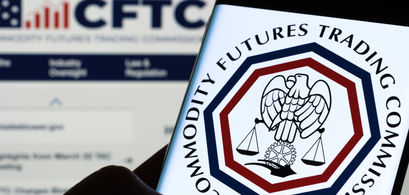Definition
The term Commodity Futures Trading Commission refers to an organization responsible for fostering open, transparent, competitive, and financially sound markets. The Commodity Futures Trading Commission is an independent governmental organization.
Explanation
Also referred to as the CFTC, the Commodity Futures Trading Commission is an independent governmental organization responsible for regulating the futures and options industries in the United States. While the history of futures contracts date back to the 1860s, the CFTC was established in 1974 as a result of the Commodity Futures Trading Commission Act.
The mission of the Commodity Futures Trading Commission is:
"... to foster open, transparent, competitive, and financially sound markets. By working to avoid systemic risk, the Commission aims to protect market users and their funds, consumers, and the public from fraud, manipulation, and abusive practices related to derivatives and other products that are subject to the Commodity Exchange Act (CEA)."
Responsibilities of the CFTC include:
Promoting market integrity by policing the derivatives markets for various abuses.
Lowering risk in the futures and swaps markets to the public and the overall economy of the United States.
Overseeing individuals and organizations, including swap execution facilities, derivatives clearing organizations, designated contract markets, swap data repositories, swap dealers, futures commission merchants, and commodity pool operators.




